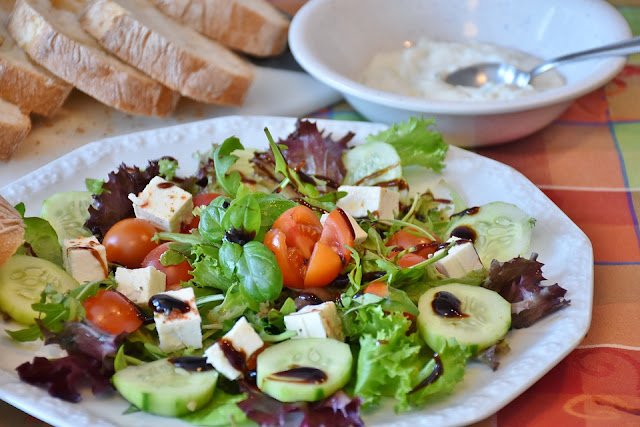Are you a busy person? The schedule filled with a stack of deadlines, dense meeting schedule, overtime until night, and so forth? Sometimes, busy people are hard to control food intake. Usually, they only choose to eat quickly and easily obtained so as not to take a lot of time. In fact, food intake is important to support human health. Here are healthy eating tips that are easy to get for busy people, which is useful to support health, weight control, improve brain work, and increase energy.
1. Breakfast
Breakfast is essential to support energy and help regulate blood sugar. Avoid breakfast with foods containing carbohydrates and sugar. Breakfast recommended to eat:
Foods that contain high complex carbohydrates, such as oatmeal, cereals, fruits, and vegetables.
High-fiber foods, such as wheat cereals, and Chia seeds.
Foods rich in protein, such as nuts, seeds, almond milk, cow's milk, yogurt, and eggs.
Foods that contain fat, such as nuts, seeds, avocados, and coconut.
2. Do not drink coffee
Most coffee drinks will burden your liver, make you dehydrated (because coffee is a diuretic drink aka increase urine formation speed), and increase the risk of unstable blood sugar. The liver is the organ that cleans your body of toxins, so if your liver is burdened, your chances of getting sick and weight increase.
Reduce coffee consumption or maybe if you cannot consume coffee. Eat herbal teas that are beneficial to the body, for example:
- Dandelion root tea can help the liver cleanse toxins the body
- Ginseng tea can help increase energy
- Oolong tea can help you lose weight
- Green tea can increase concentration
- Tea peppermint can reduce stomach pain
3. Drink plenty of water
Do not forget to drink a lot. At least, drink 8 glasses of water a day to keep your energy levels high, your digestion smooth, and your concentration awake. When your body is dehydrated, sometimes your body will also give a less precise signal when you are hungry. Be sure not to drink water just before eating, because it can block your digestion.
Drink water 20 minutes before or 60 minutes after meals. It is also advisable not to drink cold water because cold water can increase contraction in your stomach and intestines and slow down your digestion.
4. Eat less packaged foods
Generally, packaged foods contain lots of sugar, salt, stabilizers, preservatives, artificial flavors, artificial colors, and so on. These foods are not good for health.
5. Eat fresh foods
Meat, fish, beans, wheat, fruit, and fresh vegetables are good foods for health. If you want to bring a snack, bring nuts or fruit and vegetables that are cut into small pieces.
6. Notice the results of the food processor in the restaurant
When ordering food at restaurants, pay attention to the process of making food in the menu book, whether the food is steamed, boiled, roasted, or burned. Try to avoid fried foods, sautéed (cooked dry with high heat or added with oil or fat), or au gratin (sprinkled with cheese and then heated on a salamander). Such processed foods indicate that the food contains high fat and calories. Try to prefer foods that are boiled or baked.
7. Avoid processed white foods
Avoid foods such as white rice, white bread, white pasta, and white sauce. These foods are all processed foods whose fiber content and nutrients have been reduced much due to the processing. Eat whole wheat bread or brown rice. Choose tomato sauce instead of white sauce that usually contains saturated fat and sodium.
8. Always be ready snack
Wherever you go, bring healthy snacks like small cut fruit, juice, oatmeal, freshly cut vegetables, almonds or peanut. Eat your snack every 3 hours to help keep your blood sugar stable and prevent you from overeating during meals.
9. Do not eat until satiety
Eat sufficiently at mealtime, about 80% full and do not get more than that. If you still feel hungry 10 minutes later, then eat a little more. Excessive eating not only leads to weight gain but even if you eat healthy foods. Excessive eating can slow down your digestive system and can lead to more serious diseases such as diabetes.
10. Expand the consumption of fruits and vegetables
Eat fruit and vegetables every day. Look for fruits and vegetables that are colorful, fresh, and do not forget to be washed first to remove any chemicals or pesticides that may be present in the fruit and vegetables. Choose green vegetables, such as kale, spinach, or bok-choy. Green vegetables contain many nutrients that are beneficial to health.
11. Avoid late eating
Your metabolic rate will slow down at night. It is advisable to eat dinner before 8 pm so that your body could process your food and clean the toxins on your body so that you avoid excess body weight.
12. Consumption of supplements
No matter how good a food intake you eat, no one has the perfect nutrition in the body. With an environment that contains many substances that are not good for our body, or stress because of work can affect the nutrients in our body. Here are the supplements that are recommended for consumption:
- Multivitamin/mineral supplements
- Probiotic supplements
- Vitamin B-complex (to help reduce stress, increase metabolic work and help boost the immune system)
- Vitamins that contain EFA (Essential fatty acid / Omega 3)
- Fish oil (to help improve the brain work, improve the digestive system, reduce stress, and control appetite)
- Everyone has different nutritional needs. Consult a nutritionist to discuss what supplements are right for you.
All the tips mentioned above are things that are fairly easy to do, no matter how busy you are. Remember always that your health is more important than your busy life. Keep in mind that the key to healthy living is the dedication and motivation of ourselves to start a healthy life. So, even if busy, do not forget to keep your health!

